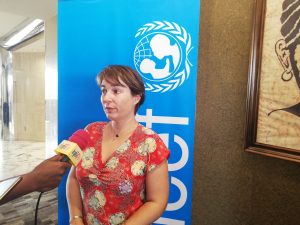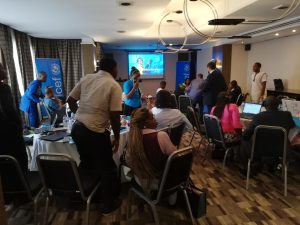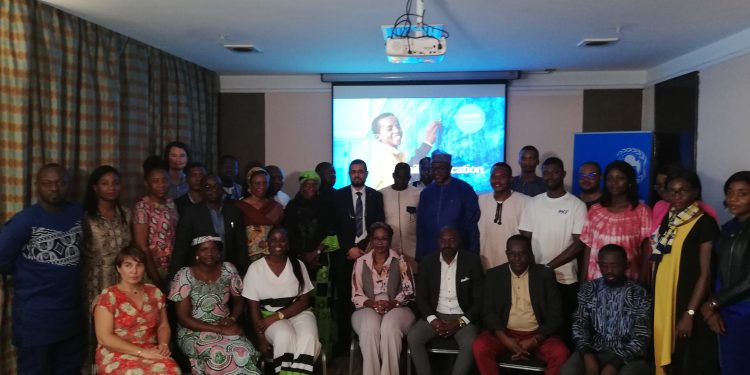Most if not all procurement services in Cameroon face one or two challenges. UNICEF has identified two main bottlenecks in the supply and logistics process.
“The first one is the delay in the transfer of funds that inturn delays the order, and the second one is lack of proper information on the logistics mechanisms”, says Anne Laure Maiola, Chief supply and logistics at UNICEF Cameroon.
She was speaking at the opening of the 2-day workshop that held at Hilton hotel from December 7 to 8, 2022.

Present at the workshop were officials from the enlarged vaccination campaign (PEV) in Cameroon, and other partners of UNICEF.
The idea was to school them on major difficulties faced in procurement processes.
“First of all it is the awareness of all the mechanism which we can use to avoid stockout”, Anne Laure Maiola said.
During the workshop, it was acknowledged that poor procurement practices can cost an organization in terms of money, time and reputation.
“Every little error can cost you a lot”, a scribe from MAERSK explained in his presentation at the workshop.
MAERSK is a key partner of UNICEF in the procurement.
According to him, one of the key factors that retards the procurement process is delay in transmitting and validating some vital documents needed in the process, especially exoneration letter and electric cargo transit number (ECTN).
The best approach is that these documents should be available before the logistics operation is launched.
Experts are of the opinion that the reason for delay most often is usually due to lack of expertise in preparing these documents, or not realizing the extent of the information and research that may be needed to complete them. Sometimes special expertise is needed to prepare the technical specifications, scope of work and terms of reference.
The participants were told that finances could be an obstacle but one key actor in the process is a consignee or transit agent.
When supplies reach the entry port of a country, they are the ones who take over to see that the supplies reach their final destination.
At times most consignees don’t relate with their clients transparently. The basic checks and balances in the process are supposed to be effected by consignees explaining clearly to their clients what it takes to transit a supply, and the risk they face if poorly handled.
UNICEF, it should be noted is helping governments with procurement services in the enlarged vaccination campaign.
“In this context, the government uses UNICEF’s supply center in Copenhagen to procure vaccines and another equipments and nutrition items”, Anne Laure revealed.

The UN body plays a vital role in the Vaccines Independence Initiative (VII).
“Our role is to pre-finance the funds for the country to pay for supplies and avoid stockout”, she said.
But proper process mapping is done before hand in this light.
The UN body (UNICEF), is a dedicated team for the support of its partners.
The workshop was the first of its kind and expectations are high that such activities are organised regularly to mitigate the challenges in procurement.








